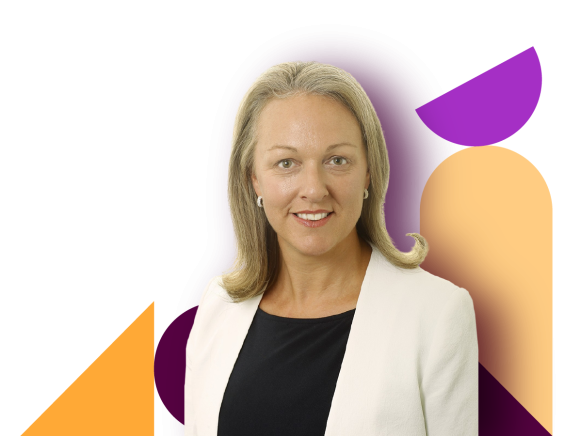“We are all part of a generational investment and change in the infrastructure sector. This is presenting significant opportunities for people to get involved in exciting and complex projects – it is also creating challenges around people, including the pull on their time across projects, given how busy the sector is.”
Current positions
- Oceania Managing Partner – Strategy and Transactions, EY
- Chair, Women’s Infrastructure Network Steering Committee
- Advisory Board Member, Infrastructure Partnerships Australia
Previous positions
- Oceania and Asia Pacific Infrastructure Advisory Leader, EY
- Oceania Infrastructure Advisory Leader, EY
- Partner, EY
- Partner, KPMG Australia
- Associate Director, KPMG UK
- Senior Analyst, Department of Treasury and Finance, Victoria
Career snapshot
Shannon is the Leader of EY’s fast growing Strategy and Transactions busines with oversight of 1000 people in Oceania (Australia, New Zealand, Fiji and Papua New Guinea). She has more than 25 years’ experience in leading and advising clients on infrastructure, franchising and service contracting projects, with a focus in the transport sector.
Shannon chairs the Women’s Infrastructure Network (WIN) Steering Committee. WIN is an inclusive global network operating in the USA, Canada, New Zealand, Australia, Ireland and the United Kingdom focused on the economic empowerment of women in society, through bringing balanced gender representation across the infrastructure industry.
In her own words
I started in the transport and infrastructure sector by chance and never left. In the first phase of my career with the Department of Treasury and Finance in Victoria I was part of the Transport Reform Unit, and through this was involved in a fundamental change in the Melbourne transport landscape, with the corporatisation and then franchising of metropolitan trains and trams and the regional train network.
In the UK, I focussed on rail franchising and road PPPs, at a time when the UK and Ireland was completely rethinking its investment in infrastructure and the delivery model for this investment. I spent my six years based out of London and advising the UK, Irish and Texan Governments on their rail franchising and toll road PPP programs.
In Australia I’ve had the privilege to be part of some of Australia’s landmark projects, including Sydney Metro, Sydney Ferries Franchising, Melbourne Train and Tram Franchising, Melbourne Metro, Port of Hastings and Regional Rail Link.
I enjoy transport – it’s a critical enabler for how people live, work and travel, and it’s also the connector for broader infrastructure development across the country.
Valuing differences
Transport and infrastructure are not women heavy industries. It’s not unusual for me to be the only women in the room at senior levels. In broader groups we are seeing a better mix.
I see an openness in the transport and infrastructure sector to valuing people with different backgrounds, education and experiences – some of this is driven by how resource hungry the sector is, but I also see the sector mirroring broader changes in society. This is opening up significant opportunities for people to enter the infrastructure sector, including for graduates and people returning to work.
This openness to recruit different people enables and encourages different ways of thinking, which is critical as we look to solve complex infrastructure challenges.
Connecting for understanding
We are all part of a generational investment and change in the infrastructure sector. This is presenting significant opportunities for people to get involved in exciting and complex projects – it is also creating challenges around people, including the pull on their time across projects, given how busy the sector is.
A couple of areas I think we should all focus on:
- We need to continue to appreciate the human beings involved in this generational investment, and focus on their wellbeing and broader connection to each other.
- The more that Governments and the private sector work collectively the more adaptive and relevant solutions to our infrastructure challenges will be.
My vision for the next 5 years is...
…an infrastructure industry that is responsive, adaptive and has at its heart different ways of thinking enabled by diverse teams.

